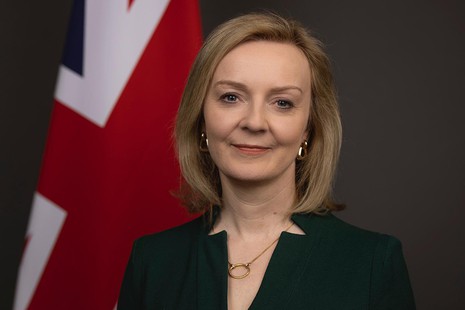Councils call on Prime Minister to deliver on her promise to provide more funding for social care

As the cost-of-living crisis could add £3.7 billion to the costs of delivering social care, councils are calling on the new Prime Minister to deliver on her promise to provide more funding for adult social care.
During the Conservatives’ leadership election, Liz Truss vowed to spend more on adult social care over the next two years, a move welcomed by local government. She said she would abolish the Health and Care Levy but keep the additional funding for services – estimated at £13 billion next year – while providing more funding to social care.
The County Councils Network (CCN), which represents 36 mainly Conservative councils, says that the new Prime Minister must now “follow through” with this commitment. It is warning that services currently face a perfect storm of staffing shortages, less availability of care beds, and higher costs at a time when demand is increasing.
As a result, people are waiting longer for a care package or placement, at a time when the perception is that social care is “fixed” with reforms on the way and due to be implemented next October, CCN warns.
Care providers also say they are facing higher costs too – which threatens their viability – ahead of planned reforms that are also due to be introduced from next autumn. The reforms are something that both councils and providers have said are “drastically underfunded” and threaten care market sustainability, according to CCN.
The network’s warning comes as new analysis reveals that councils in England are set to face £3.7 billion in additional costs this year and next to keep care services as they are presently due to rising inflation, wage increases, and demand.
These rising costs are double of that of previous estimates by PwC for CCN, which estimated costs would rise £1.6 billion over the same two-year period due to a combination of service demand and inflation.
Under the previous government’s plans, just nine percent of the £13 billion ringfenced for health and social care is to be spent on adult social care. This funding, however, is not aimed at addressing the immediate pressures in the system, such as the need for councils to commission more care packages to meet rising demand and to alleviate inflationary costs.
Instead, it is to pay for the reforms being introduced from October 2023 – which encompass more generous financial support for care users and funding for councils to raise the fee levels so they pay providers a new ‘Fair Cost of Care’. Despite this, CCN says the planning for these reforms are already placing councils under severe strain, with research published earlier this year showing the policy was underfunded by £854 million a year.
With this existing funding shortfall and a three-fold increase in core costs, if no more funding is forthcoming, councils will have to further scale back the quality and accessibility of care services, meaning that people could be waiting longer than they do present for a care package, CCN stresses.
At the end of April, it was estimated that there were 542,000 people waiting for care packages, assessments, or direct payments, and reviews – up by 37 percent six months prior.
These longer waits are impacting on hospital discharges, where people are medically fit to leave hospital but are being held up because of a lack of available care in the community. At the end of July, there were 13,014 beds occupied by those who are medically fit to be discharged, equating to 10 percent of all beds – up from 10,381 last November. Many of these delays are attributable to adult social care.
County leaders say the new government should confirm further investment in adult social care in this month’s emergency budget, with extra funding to come directly to local government as soon as possible so councils can begin to address pressures.
Cllr Martin Tett, Health and Social Care Spokesperson for the County Councils Network, said: “The new Prime Minister’s commitment during the leadership election to spend more money in adult social care was a welcome recognition that the care system is significantly underfunded and that this has a knock-on impact on the NHS.
“Services were already under pressure ahead of the government’s reforms being introduced next October, and councils were not set to receive any funding to address these immediate problems. However, the situation is now worsening with rising inflation meaning councils face an extremely challenging 18 months and increased costs of £3.7bn this year and next. We face the perfect storm of staffing shortages, fewer care beds, and higher costs – all of which will impact on individuals wating for care and discharges from hospital.
“Whilst the perception is that social care is fixed with reform on the way, the experience of those who require care now is anything but. We urge the government to confirm that social care will receive a much-needed funding boost as soon as possible in this month’s emergency Budget.”

